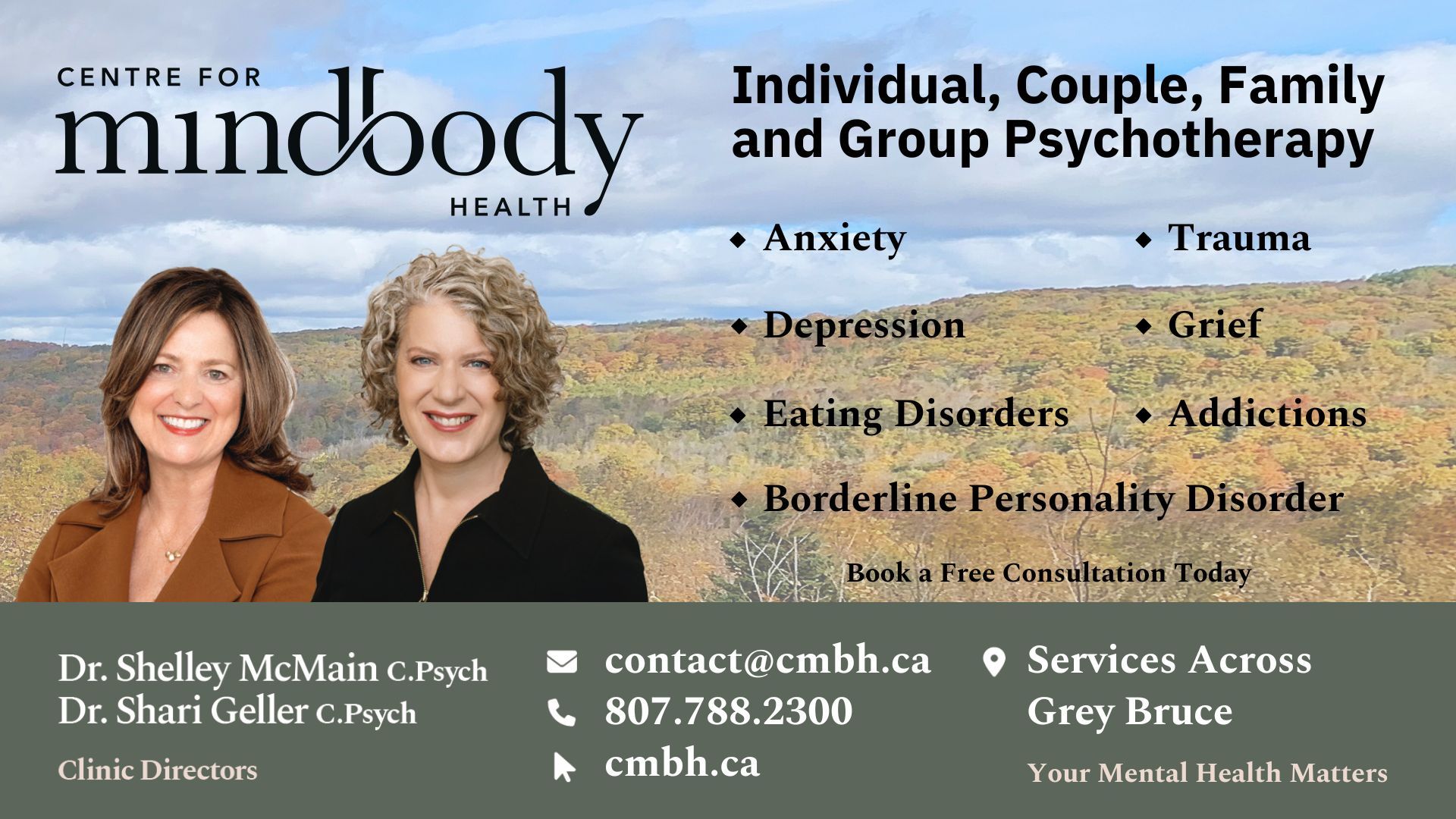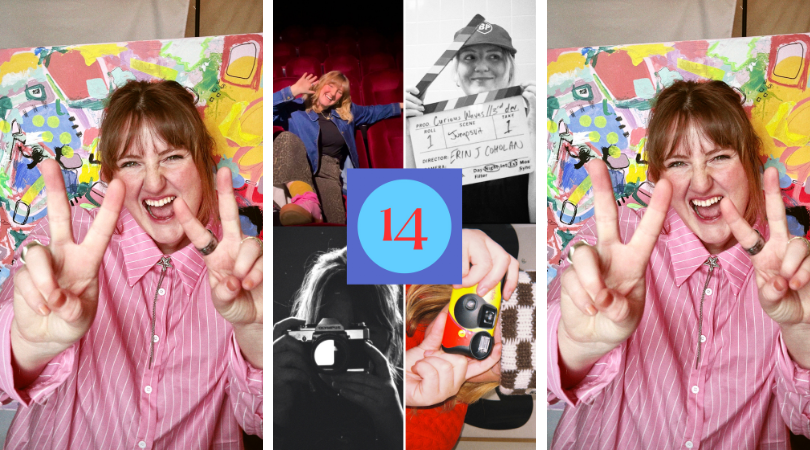We live in a beautiful area full of wooded forests, rolling hills and breath-taking views here in Bruce Grey Simcoe, which allow many of us the possibility to escape our own minds. Yet, there are those who are crippled by their thoughts and are unable to experience the beauty around them.
With the increased number of services moving to online or non-traditional platforms, the field of psychology and mental health services is no exception. The COVID-19 pandemic has fast tracked a treatment method that is in desperate need of more attention. The traditional methods of human interaction have been challenged following this pandemic. Perhaps, one of the most overlooked areas is mental health treatment.
To serve mental health needs practicing clinicians and other mental health services have been forced into online platforms, which is paradoxical. While online platforms may initially seem like a limited delivery method, it may perhaps lead to better lasting outcomes for patients.
“In general, we know that working as a team is much stronger and more powerful than working alone. Mental health is no exception. Developing a team around the client is essential”
After speaking with a number of practicing clinicians across Canada, it became apparent that there are significant advantages to using non-traditional forms of communication in a clinical setting. Perhaps, the greatest advantage to online and telehealth is the greater reach clinicians have to their clients and future clients.
In the more rural and northern regions of the country, clinicians have gained access to people seeking support beyond where traditional services used to reach. This became especially clear after a clinician in Nova Scotia expressed feeling overwhelmed with clients not only from the pandemic but also following the tragic shooting that took place in the province. Indeed, this poses to be an essential tool to the field of mental health. Gaining the ability to effectively communicate with individuals in need of support is critical to a successful treatment plan.

But as there is a significant increase in clients coming forward to seek support, there has also been a drop in pre-existing clients. This decrease or refusal of treatment comes from a lack of education or awareness of the technology used for services. Therefore, there are people who worked up the courage to come forward and ask for help and are now refusing the service they once sought out.
Aside from the access to clients, these distance-delivered methods also offer additional comfort to the client. This comfort comes from the piece-of-mind in knowing that you have a team behind you with the same goal in mind: your mental health and well-being.
“Our community and many other communities are in desperate need of long-term mental health support infrastructure”
In general, we know that working as a team is much stronger and more powerful than working alone. Mental health is no exception. Developing a team around the client is essential, and that is exactly what one local physician is doing.
At the Owen Sound Family Health Team we have a physician who has dedicated her time and expertise to her patients and their well-being. Despite not being financially compensated, this local doctor devotes one day a week to meeting with clients in an office at the Family Health Team and works alongside a psychiatrist in London, Ontario. This doctor is the only one of the 22 physicians at the Family Health team who engages in Ontario Telemedicine Network (OTN) operations. It is needless to say that their kindness and generosity to our community cannot be overstated.
The key to the success of distance delivered treatment is the access to the patient, unlike most psychiatry treatment where the majority of treatment is pharmacological. Distance delivered treatment follows a more cognitive behavioural treatment (CBT) method. The greater access to the patient, specifically over time for perhaps, 12-18 months allows for more follow up care, additional longitudinal information from those close to them, and allows the clinician and physician to shift their treatment plan if needed. The genuine empathy and care this type of treatment provides cannot be stressed enough. OTN is one of the few longer forms of mental health treatment and supports that is federally funded. Our community and many other communities are in desperate need of long-term mental health support infrastructure.
For example, despite enduring traumatic events like losing a loved one people are denied grief counselling at the hospital because of not having “a diagnosed psychological condition”. It is actions such as these that pile on to the stigma of mental health and the feelings of being alone. What is most concerning about these actions is that they come from those who we seek out in times of need. Those who climb the ranks of such organizations appear to be losing a degree of their empathy.
It seems clear that there is a lot of work that still needs to done with the treatment and support of those living with mental illness. There are a lot of voices echoing the sentiments of ‘ending the stigma’; however, there appears to be little to no action. Although, there are services locally and many do create meaningful change in people’s lives, perhaps, using more distance-delivered methods such as the Ontario Telehealth Medicine or more well-known free services like Kids Help Phone will create a wider reaching service.
While we are working together to flatten the curve of COVID-19, we should also be working to flatten the curve of the mental health crisis.
Written by Chad Nichol
About the author: Chad Nichol is the student rep for The Northern and Rural Division of The Canadian Psychological Association and is currently writing about the benefits and limitations of using distance-delivered psychological interventions during the pandemic.
Resources for mental health treatment:
The following website was developed to help people with anxiety stemming from COVID by a team of Canadian researchers – it has information, resources, and offers a self-assessment of one’s COVID anxiety: https://coronaphobia.org/
Anxiety Canada is a fantastic source of information for people looking for information about anxiety (including COVID-related anxiety) and how to cope with it: https://www.anxietycanada.com/
The Canadian Association of Drugs, Technology, and Health has published an assessment of internet-delivered CBT for anxiety and depression: https://www.cadth.ca/internet-delivered-cognitive-behavioural-therapy-major-depressive-disorder-and-anxiety-disorder
There are different service providers that provide online therapy (at a cost) to Canadians, including, for example, https://www.tranquility.app/
How to deal with anxiety: https://outwittrade.com/how-to-deal-with-anxiety/













